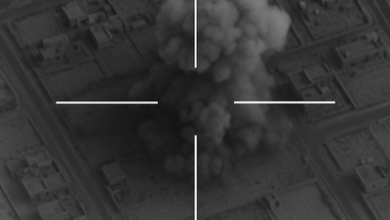
In a significant escalation of military actions, the Israel Defense Forces (IDF) launched an airstrike on June 21, 2024, targeting a key Hamas naval commander in the Gaza Strip. The operation is part of Israel’s ongoing efforts to neutralize senior militant figures responsible for orchestrating attacks against Israeli targets.
The IDF confirmed that the strike successfully hit the commander, identified as Muhammad Saadi, who was reportedly involved in planning and executing maritime operations against Israel. “Muhammad Saadi was a significant figure in Hamas’ naval forces, directly responsible for numerous terror activities aimed at harming Israeli civilians and infrastructure. His elimination is a critical blow to Hamas’ operational capabilities,” an IDF spokesperson stated.
The airstrike occurred in the early hours of the morning and targeted Saadi’s vehicle as he was traveling in a residential area of Gaza. The precision strike aimed to minimize collateral damage, though reports from Gaza indicate that there were additional casualties and damage to nearby structures.
Hamas has condemned the strike, vowing retaliation for the killing of their commander. “This cowardly assassination will not go unanswered. The resistance will continue, and the blood of our martyrs will fuel our determination to fight the occupation,” a Hamas spokesperson said.
Prime Minister Benjamin Netanyahu praised the IDF’s operation, reiterating Israel’s commitment to defending itself against terrorist threats. “This operation is a testament to our resolve to protect our citizens. We will continue to target those who threaten our security and disrupt their ability to carry out attacks against Israel,” Netanyahu stated.
Defense Minister Yoav Gallant also commended the IDF, emphasizing the importance of preemptive strikes against high-value targets. “By eliminating key figures within Hamas’ military wing, we are not only thwarting immediate threats but also degrading their ability to plan future attacks,” Gallant said.
The airstrike is part of a broader strategy by Israel to weaken Hamas’ military infrastructure and leadership. Over the past few months, there has been an increase in targeted operations aimed at senior Hamas figures, reflecting a shift towards more aggressive tactics to deter and neutralize threats.
International reactions to the strike have been mixed. The United States reiterated its support for Israel’s right to self-defense while urging restraint to avoid further escalation. “We stand with Israel in its efforts to defend itself from terrorist threats. At the same time, we call for all parties to exercise restraint and work towards a peaceful resolution to the conflict,” said a spokesperson for the US State Department.
The United Nations expressed concern over the potential for increased violence and called for immediate efforts to de-escalate the situation. “We are deeply concerned about the rising tensions and urge all parties to refrain from actions that could further destabilize the region. It is imperative to seek diplomatic solutions to address the underlying issues,” said a UN representative.
The European Union also emphasized the need for restraint and dialogue, highlighting the humanitarian impact of ongoing hostilities in Gaza. “We call on all parties to avoid actions that endanger civilian lives and to prioritize efforts towards achieving lasting peace and security,” an EU representative said.
As the situation remains tense, the focus will be on how both Israel and Hamas respond to this latest development. The potential for further escalation underscores the urgent need for international mediation and efforts to prevent a broader conflict.




